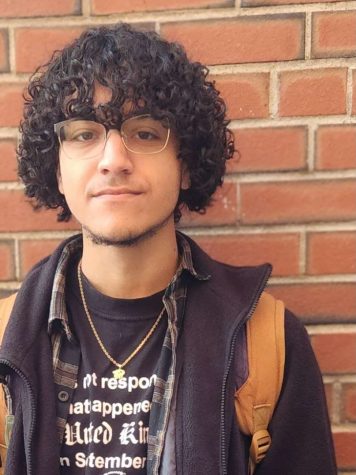The Reason for SHA’s Poor Mental Health Is Revealed by Its Students
February 10, 2023
If you are a student at SHA, you or someone you know is struggling with mental health. More than a fourth of students report that their mental health is worse than average. This means that if you know more than 3 people at this school, you are very likely to know someone that is struggling with their mental health.
SHA’s rate of bad mental health among the students is at a higher rate than average. The honor academy’s rigorous workload is taking a toll on its student’s mental health at a disproportionate rate in comparison to other schools.
A poll sent out to the students of SHA reported that roughly half of the school’s mental health is below average. When given a 5-scale multiple choice, 77 of the 166 students surveyed chose “not great” or “terrible” as the best descriptors of their mental health.
Poor mental health has been on the rise with each new generation, however, SHA is still above the global average.
Data from the 2021 Adolescent Behaviors and Experiences Survey indicate that 37% of U.S. high school students reported poor mental health, according to the CDC. This is a noticeable difference from SHA’s reported 47%, with a plus or minus 4% margin of error.
So that brings the question: Why is SHA’s mental health so much lower than expected? Many students state that the workload at SHA is to blame.
According to the poll sent out to SHA students, roughly 43% of students agree or strongly agree with the statement: “SHA’s push for me to reach my academic potential affects my mental health negatively.”
“I think the combination of schoolwork and overall curriculum difference in SHA compared to other schools is definitely more in terms of work and stress,” says Matthew Chigos. “Students aren’t used to the change from a regular middle school to a high-expectation high school.”

Half of the students of SHA state that their mental health interferes with academics more often than not. On top of this, a scholarly article from the University of Calgary states that students report depressive symptoms increasing in correlation to school workload, in regards to the link between school work and depression.
These two datasets in correspondence can further show the idea of the rigorous workload of the Honors Academy contributes to the low mental health of its students.
“I suppose I’d consider myself depressed. It makes my grades suffer because I have no motivation to do anything for extended periods of time which includes school work,” says an anonymous senior. “We have a harder course load and are expected to progress further than our peers in other schools”
It’s common knowledge at the school that students’ mental health is not good, as seen in prevalent by interviews. But the question we’re left with is what we can do to help this problem.
Will bringing awareness to the problem of overwhelming workload help the students of our school overcome it? Or do we need to pressure the teachers into lightening their load?



